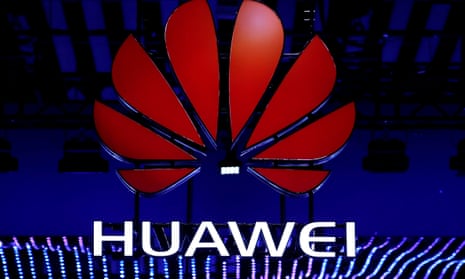Australia’s spy chief has explained why China’s Huawei or ZTE could not be allowed to help build Australia’s new 5G mobile network, saying a potential threat anywhere in the network could undermine the entire project.
Mike Burgess, the director-general of the Australian Signals Directorate, says if “high-risk vendor equipment” is used anywhere in Australia’s evolving 5G network, the future communications system underpinning our water supply and electricity grid and health systems, even self-driving cars, could not be protected.
“The stakes could not be higher,” Burgess warned.
“Historically, we have protected the sensitive information and functions at the core of our telecommunications networks by confining our high-risk vendors to the edge of our networks.
“But the distinction between core and edge collapses in 5G networks. That means that a potential threat anywhere in the network will be a threat to the whole network,” he said.
Burgess made his comments at the Australian Strategic Policy Institute’s national security dinner in Canberra on Monday evening.
In August, the federal government decided to bar Huawei and ZTE from supplying equipment to Australia’s 5G network, claiming it was necessary to protect national security. Marise Payne, the foreign affairs minister, said it was not targeted specifically at Huawei and ZTE but applied to any company that had obligations clashing with Australia’s national security.
The government’s decision was largely overshadowed by the Liberals’ leadership ructions, but it did not go unnoticed in China.
“The Australian government has made the wrong decision and it will have a negative impact to the business interests of China and Australia companies,” China’s commerce ministry said.
Burgess told the audience at ASPI’s dinner on Monday that strategic and economic power was shifting east, as the global economy changed.
He said it was bringing with it a wealth of opportunities for Australia as the country advances its digital economy and trade relationships, but it was also changing the industrial base Australia relies on for critical infrastructure.
“We will need to be open-eyed on the potential threats that any significant change of this kind poses to Australia’s most important interests,” he said.
“It would be naive to think we can manage these strategic and technology risks by holding back change. Like everything, it is a question of finding the right balance between leveraging all the advantages that these new shifts bring – and protecting Australians, our values and our way of life.
“These twin themes of technological and strategic economic shifts can be seen in the government’s recent decision to prohibit telecommunications carriers from using high-risk vendors in 5G networks.
“This decision, which was not taken lightly, was supported by technical advice from my agency, all elements of my agency. Our intelligence and offensive cyber experts that led the formation of our cyber security advice.
“Our starting point was that, if 5G technology delivers on its promise, the next generation of telecommunications networks will be at the top of every country’s list of critical national infrastructure.
“5G is not just fast data, it is also high-density connection of devices – human to human, human to machine and machine to machine – and finally it is much lower signal latency or speed of response.
“5G technology will underpin the communications that Australians rely on every day, from our health systems and the potential applications of remote surgery, to self-driving cars and through to the operation of our power and water supply.”
“This is about more than just protecting the confidentiality of our information – it is also about integrity and availability of the data and systems on which we depend. Getting security right for our critical infrastructure is paramount,” he said.
“In consultation with operators and vendors, we worked hard this year to see if there were ways to protect our 5G networks if high-risk vendor equipment was present anywhere in these networks.
“At the end of this process, my advice was to exclude high-risk vendors from the entirety of evolving 5G networks.”
